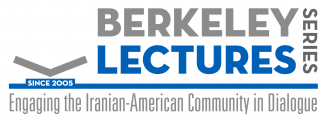“Berkeley Lecture Series” presents:
A Talk by Dr. Mansour Farhang, Professor of International Relations, Bennington College
Topic: Iran’s Nuclear Program and U.S.-Iranian Relations
The referral of Iran’s nuclear file to the United Nations Security Council is a symptom of the 26-year old estrangement between Iran and the United States. Thus, the key to a peaceful resolution of the conflict is direct talks between Washington and Tehran. In the absence of such initiative the present dispute between them is threatens to get out of control and lead to unwanted consequences for both countries.
Date: Sunday, March 26, 2006
Time: 2:00 P.M.
Place: 110 Barrows Hall
MANSOUR FARHANG has a Ph.D. in political science from Claremont Graduate School. In 1970s, he taught at California State University at Sacramento. Following Iran’s 1979 revolution, he served as an advisor to the Iranian foreign ministry and as ambassador to the United Nations. He resigned his ambassadorship in protest when his efforts to negotiate the release of the American hostages in Tehran failed. In the early months of the Iran-Iraq war, he worked with international mediators to settle the war. During this period, he wrote and spoke about the threat of religious extremists who had come to dominate the course of the Iranian revolution. In June 1981, following the violent suppression of political dissidents, he was forced to leave Iran. In the fall of 1981, he returned to the United States and became a research fellow and lecturer at Princeton University. Since 1983 he has been teaching international relations and Middle Eastern politics at Bennington College in Vermont. He is the author of two books and dozens of articles, in English and Persian, published in both academic journals and popular periodicals. His opinion pieces have appeared in a variety of newspapers, including the New York Times, the Los Angeles Times, the Washington Post, and the Christian Science Monitor. His third book, A Theology in Power: Reflections on the Iranian Revolution is near completion. He has been a human rights activist since his undergraduate days in California. Currently, he serves on the advisory board of Human Rights Watch/Middle East and is a designated speaker for the Vermont Council on the Humanities. He has lectured at many universities and colleges across the country and is a member of the Columbia University Middle Eastern Seminar. He has also been a participant in the seminars of Council on Foreign Relations and Carnegie Endowment for International Peace. He has appeared as a guest on numerous radio and television programs, including PBS News Hour, ABC’s Night Line, Bill Moyer’s Journal, 60-Minutes, CBS’s Face the Nation and CNN. He is a regular commentator on the Persian broadcasting of both BBC and Radio France International.
Lecture in English
